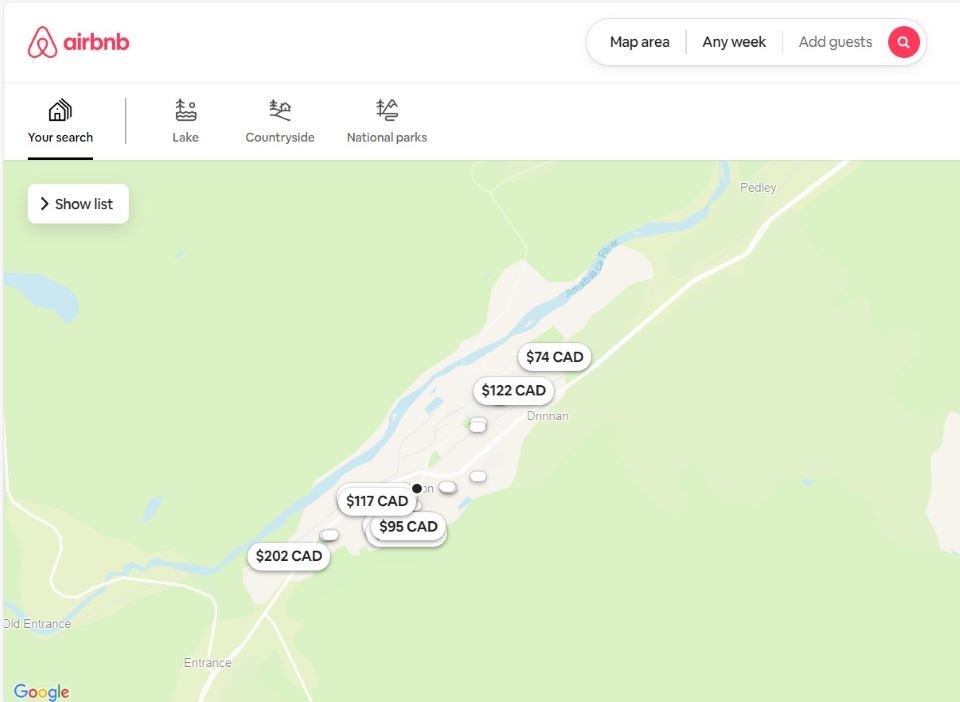HINTON – The Town of Hinton will likely not further restrict short-term rentals after receiving a report outlining the current situation in the community.
On Tuesday (July 22), committee of the whole directed administration to incorporate suggested revisions to the land-use bylaw as outlined in the Invistec Consulting report and return the bylaw to a future council meeting.
Most of these revisions are only meant to distinguish between principal and non-principal short-term rentals (STRs). A public hearing will be required before any amendments are made to the land-use bylaw.
“Compared with other municipalities, the Invistec report confirms that Hinton has taken a comprehensive approach to addressing non-principal STRs,” administration stated in its report to council.
Last fall, the Town imposed a 130-unit cap on STRs, such as Airbnbs or VRBOs, in non-principal residences, which is defined as a dwelling unit but not someone’s primary residence. This cap was meant to ensure the availability of affordable housing in the community.
Council had also requested more information on how to regulate non-principal STRs. In response, administration retained Invistec to prepare a report.
According to the report, non-principal STRs are widely distributed throughout the community, although there are some concentrated addresses in the Bradwell Street and Tocher Street areas.
The report noted how Hinton’s strategy addressed housing availability and equity by distinguishing between principal and non-principal STRs and applying specific regulations and fees to each through its bylaws.
In Hinton, 42 non-principal STRs are compliant, five are in the process of becoming compliant and two are non-compliant as per Granicus software listings information of July 15.
Other mechanisms that council could consider include placing limits or caps by district, only allowing non-principal STRs in specific zonings or reconsidering the cap, since there were fewer of them than originally reported.
Coun. Kristen Chambers noted the value of the report.
“It to me showed that we have taken a strong stand in the work that we’ve done so far,” Chambers said.
Mayor Nicholas Nissen asked administration if any fines had been issued for non-principal STRs.
Municipal planner Lorraine Walker replied that there had been five or six fines issued, with two of them able to be dismissed, one of them paying and the remainder having received their second notifications.
She added that the latter few were no longer advertising, which makes enforcement more difficult, although the Town was able to take a digital snapshot of each one’s last booking.




